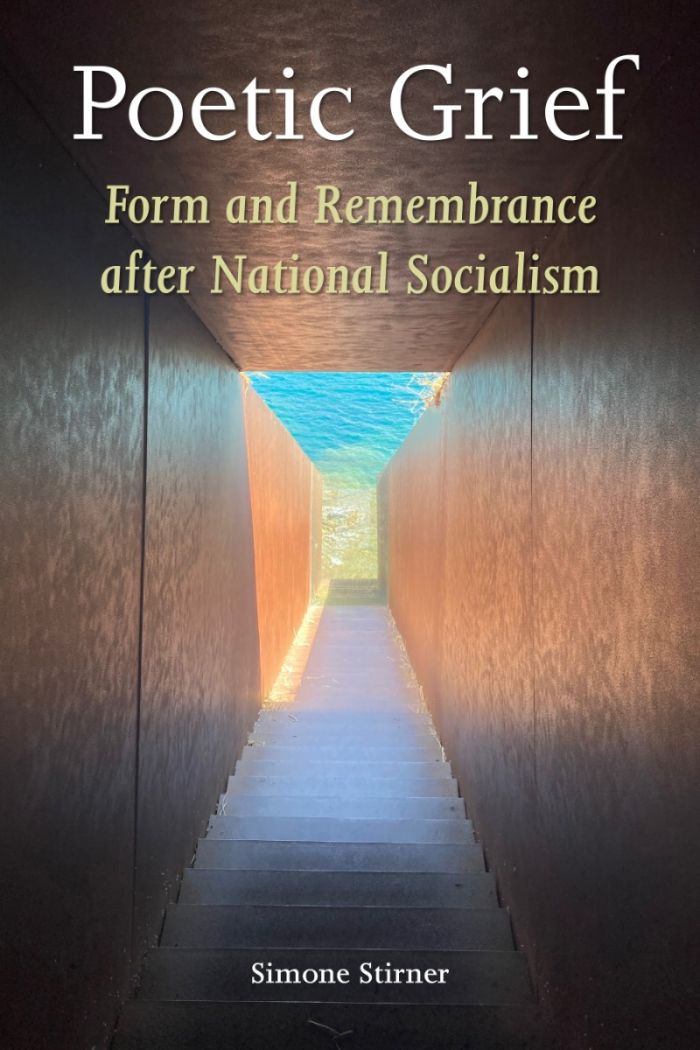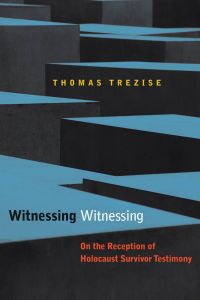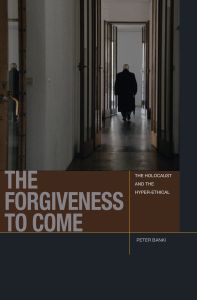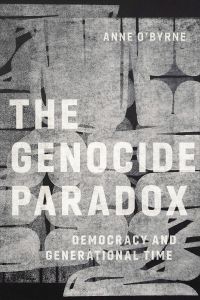Poetic Grief
Form and Remembrance after National Socialism

This book can be opened with

Grief is non-linear and destabilizing. It can unravel our sense of time and relation to the world. Poetic Grief follows these effects across poems written in the wake of National Socialism. Moving beyond established paradigms of trauma and representation, the book offers a formally grounded and affect-oriented approach to post-Holocaust poetry that develops a new framework for understanding the relationship between reading poetry and the experience of grief.
Bringing together phenomenologically informed close readings and historical-political analysis, Poetic Grief considers how poetry can affect embodied experiences through rhythm and breath, how its complex semantic patterns can collapse epistemic certainty and upend the flow of time—like grief does. New readings of poets familiar to the context of Holocaust remembrance such as Paul Celan, Dan Pagis, Charlotte Delbo, and Irena Klepfisz appear alongside analyses of poets remembering National Socialism at different historical moments, including May Ayim, Audre Lorde, Ghayath Almadhoun, and Max Czollek. In their poetry, reading becomes an act of participating in relations that the book’s respective chapters describe as “withness,” “ongoingness,” and “solidarities of grief”—modes of answering to and being with loss.
In a world shaped both by decolonization and the aftermath of the Shoah, Poetic Grief offers a new vocabulary for poetic remembrance alongside reflections about the role of grief in cultures of memory: To confront the force of grief in poetry is to rethink its place in cultures of remembrance, to see where it has been repressed and instrumentalized, and to create openings that respond to what cannot be contained and conceptualized about loss.
This book is a recipient of the Jordan Schnitzer First Book Publication Award, administered by the Association for Jewish Studies.
“The status of ‘poetry after Auschwitz’ has been debated for more than seventy years, but Simone Stirner has found a fresh way of approaching the problem of post-traumatic representation and memory. With a focus on literary affect and its embodied impact on readers, Poetic Grief offers a stirring meditation on loss in the wake of the Shoah and in conversation with other histories of violence. Resisting the closures and containments that sanctioned forms of remembrance seek to install, Stirner reveals how poetry opens up grief—and how grief opens up poetry—in ways that are uncontainable but can enable difficult solidarities.”—Michael Rothberg, author of The Implicated Subject: Beyond Victims and Perpetrators
“Stirner provides an original, nuanced, and expansive analysis of poetry emerging in the prolonged aftermath of National Socialism. By examining poetic grief as a force that structures and de-structures, orients and disorients, she greatly advances our understanding of Holocaust and post-Holocaust poetry.”—Katja Garloff, Reed College





